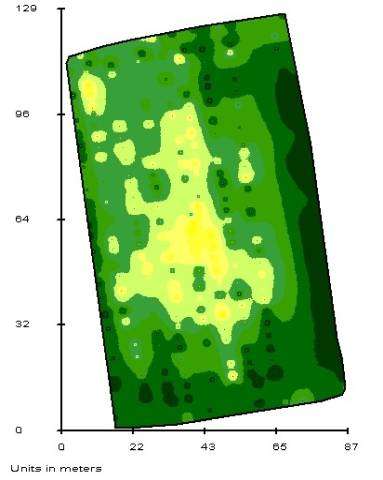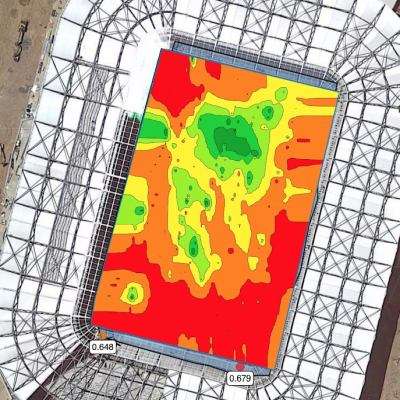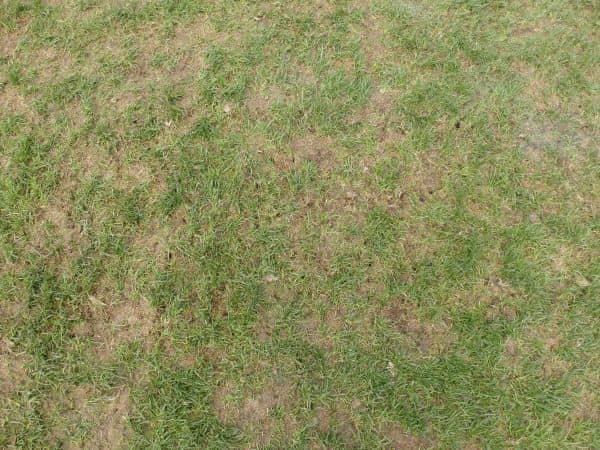SPORTS TURF AGRONOMISTS.
About Gilba Solutions.
As sports turf agronomists, Gilba Solutions offer independent turf agronomy services throughout NSW, QLD and the ACT. Based in Bowral, NSW we are near you if you’re in regional NSW, the ACT, Wollongong or Sydney.
We are firm believers that when it comes to sports turf agronomy a scientific approach is the only approach to take. Jerry Spencer, our Senior Turf Agronomist is tertiary educated with an Hons Degree in Soil Science and a Grad Dip in Marketing. However more valuable than this is over 35 years experience in turf agronomy.
That’s the reason our clients range from Group 1 golf courses, and Stadium Managers, to UK Premier League Clubs.They all appreciate an impartial professional service from University qualified staff.
Our Scientific Approach as Sports Turf Agronomists.
As turf agronomists we work closely with turf managers to produce the best possible playing surfaces. After a turf health assessment, a soil or water test or from a site visit are based on good science, and not just to sell product.
As one of the few companies in Australia to employ a University qualified Soil Scientist we are confident we can tailor any program to meet your budget.
Industry Innovations.
We were one of the first companies in Australia to fully commercialise agronomic practices such as:
- NDVI, soil moisture and soil profile GPS compaction mapping.
- Stand alone non staining turf pigments for dormant couch.
- The use of a slow release magnesium amendments.
Our Values.
As sports turf agronomists we:
- Support organisations that help promote the turf industry, such as International Greenkeepers for Hire.
- Believe that regular testing of products is a good thing. See our 2022/2023 work on soil surfactants, and their impact on soil organic matter.
- Support the use of non-chemical alternatives. See our blog on DIY pest control.
Our Services as Sports Turf Agronomists.
Sports Turf Health Assessments:
Turf agronomy enables you to audit a sports surface, and gain a real-time snapshot of the surface condition. This allows you to:
- Map, measure, and monitor turf grass.
- Reduce the use of turfgrass chemicals, fertiliser, and water.
- Quantify turf health.
- Identify how surface hardness and sub-surface compaction affect the safety of a playing surface.
- Focus on any poor management practices.
- Identify any problems with drainage, soil, and turf selection.
Once this is completed you have an easy-to-read report with simple recommendations.
Surface Hardness Testing:
- A cone penetrometer quantifies issues with surface and subsurface compaction, and highlights any potential safety concerns.
Turf Health Assessment:
- An NDVI allows early detection of existing or future problems. A sports turf agronomist uses the data to identify issues such as disease, the impact of shade on turf grass, or even wear.
Soil Moisture Mapping:
- GPS soil moisture sensors allow you to map the soil moisture distribution, identify any problems, and carry out irrigation audits.
Shade Analysis.
- This involves a site visit and then a report is generated that discusses any issues with shade and remedial options to deal with it.
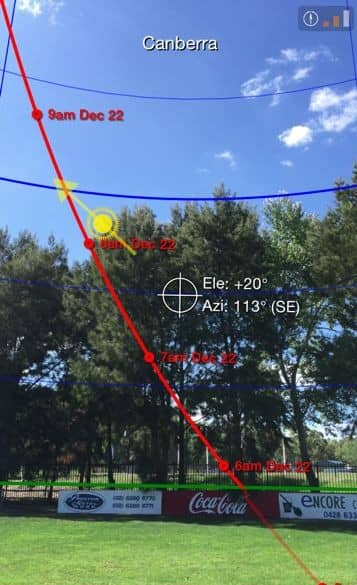
Sports ground shade analysis
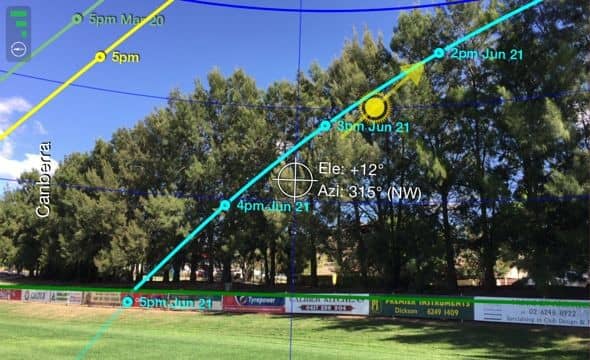
shade analysis of a sports ground in Canberra
Soil Testing.
Turf agronomy is the study of soil, and Jerry Spencer our Senior sports turf agronomist has an Hons Degree in Soil Science.
A Soil test gives information on a soil’s physical and chemical characteristics. How useful a soil test is depends on several factors:
- Before you even take a sample when was it last tested? Testing a heavy soil every year or in some instances more frequently than this is a waste of time. In contrast, a new sand construction benefits from regular testing as it is more prone to leaching. Unless you have a specific problem or test a sand-based construction, testing every three years is fine.
- How is a sample taken? Was it representative or just taken from one location?
- This is one question that is seldom asked. Before you test when was fertiliser last applied?
- If your comparing soil test results its important to know what methods were used. Not all companies use the same extractant and
- Who is interpreting the results?
In the worst-case scenario, if you don’t know the answers to the above then soil testing is pointless.
Water Testing.
Turf Managers often overlook water quality. However, when you consider it directly affects turf and the results from turf chemicals, water testing should be given a more serious focus.
A sports turf agronomist identifies how chemicals present in the water:
- Impact soil chemical and physical properties.
- Effect the rate of alkaline hydrolysis of certain chemicals.
Player Safety & Field Management.
Sportsground Safety.
The increase in overall use and women’s sports is placing more pressure on existing playing surfaces. This raises the issue of player safety, and is one example of where a qualified sports sports turf agronomist plays an important role.
Field Usage Guidelines.
Several factors limit the amount of use a sports field can take. These are:
- The construction type.
- What age are the players? Older players cause more wear than children.
- What turf type is present? Turf grass varies in its wear tolerance.
- When is it being used? The time of year has an impact on wear and recovery and
- Does the site have drainage or irrigation? A wet field is more prone to damage than a dry one.
Usage Recommendations by Construction Type.
Construction Type | Use (hours/week) |
Soil field (with or without drainage). | 2-3.7 |
Sand profile with drainage. | 5.3-11 (7.8 hours per week over 35 week season). |
Sand carpet construction. | 12-13 |
Usage Recommendations by Season and Grass Type.
Season | Perennial Ryegrass | Couch |
Winter playing season | 5-12 hours/week | 15-20 hours/week |
Summer playing season | 10-15 hours/week | 20-25 hours/week |
Maintaining Surface Quality:
- Don’t train in high-wear areas like goalmouths.
- Spread wear. Don’t repeatedly train in the same location.
- Carry out repairs asap. Divot fill straight after a game and
- Always carry out regular maintenance work.
START IMPROVING YOUR PLAYING SURFACES TODAY
FREE TURF ASSESSMENT CONSULTATION
Book a no-obligation consultation with our senior sports turf agronomist Jerry Spencer and discover how science-based turf management can transform your playing surfaces.
- ✓ Comprehensive site evaluation
- ✓ Customized recommendations
- ✓ Budget-friendly solutions
- ✓ 35+ years of experience
No obligation • Fast response • Professional service
Case Studies as Sports Turf Agronomists.
The images below are of two separate case studies that we have carried out. Others are in our case study section.
Case Study 1: Private School Field Assessment.
A major Public School in Sydney had issues with surface damage on their main oval over the Winter games season. Gilba Solutions were asked to carry out a field assessment to determine if issues existed and if so, what action to take to remediate them. Historically annual aeration was being carried out to a depth of 75 mm.
Assessment Findings:
- The main ground was receiving over 70 hours use a week. This was mainly towards the Eastern side of the ground close to the entry/exist. Image 1 clearly shows yellow areas indicating poor quality turf through the central corridor. Dark green areas correspond to undamaged turf.
- Subsurface examination showed compaction at a depth of 100 mm toward the Northern end of the ground. The dark ping areas in Image 2 reflect this.
Recommendations:
- Spread the wear by using the far side of the ground.
- Examine the use of more wear tolerant ryegrass varieties.
- Carry out a compaction relief program aiming to bypass the deep compaction layer at 100 mm.
Case Study 2: Stadium Shade Impact Study.
This is an NDVI Study we were contracted to carry out after concerns about the impact of shade on the turf. The surface at the Northern end of this major venue was struggling and disease issues were developing.
Findings:
A site study and the use of an NDVI showed that the turf at the Northern end of the ground was about 15 to 20% less than at the Southern end.
Outcome:
As a result of this the site purchased 4 LED stadium grow lights.
Our Clients
Clients who use our sports turf agronomist services include:
- The NRL.
- Sydney University.
- Accor Stadium.
- Comm Bank Stadium.
- Knox Grammar.
- Kings School.
- The ACT Government.
Research & Development as Sports Turf Agronomists.
Gilba Solutions develops and improves products in the market. This led to the introduction of Vertmax and Vertmax Duo turf pigments. Vertmax Duo contains a high load of salicylic acid.
Recent Research Projects
Recent sports turf agronomy research looks at:
- Grass seed for oversowing couch.
- Turf pigments on golf greens.
- A 2-year study into Soil wetting agents and surfactants and their effects on soil moisture content.
- Foliar bio-stimulants, and their effects on root growth.
Sports Turf Agronomist Blog.
We write a regular Turf Blog on topics such as:
Turf Management Topics
- Improvements in Sports turf perennial ryegrass.
- Adding Value to your home.
- How to get the best results when you control broadleaf weeds in the Autumn.
- Stadium turf management for non sports events.
- Turf Nutrient Management.
- Fertilizer Strategies for High Performance Turf.
- Aquatic weed control at Federal G.C. in Canberra.
- 2024 Soil wetting agent research.
- How granular gypsum products can vary.
- The impact of Global Warming on weed control.
- The role of blue light in shade.
- Factors that affect herbicide performance.
- The role of salicylic acid in turf stress.
- Indicator weeds.
- NZ and US turf-type ryegrass.
- Pythium in turf and how to manage it and
- Ground pearl in turf.
Weed Profile Series
- Petty Spurge.
- Swinecress.
- Amaranth.
- Cleavers.
- Sowthistle.
- Heal All.
- Dock.
- Pigweed.
- Creeping Buttercup.
- Little Ironweed.
- Oxeye Daisy.
Hire Our Services.
Consultation Process.
Discover how Jerry Spencer and the Gilba Solutions team can help you take care of your sports turf. Please feel free to contact us for a free consultation and see what we can do for you.
Customized Solutions
We have several packages available to meet any budget. After your initial free consultation, we are happy to discuss these on a case by case basis.
One Shoe doesn’t fit everyone. Gilba Solutions are specialists in sports turf digital solutions. We offer a data driven approach to manage soil moisture, turf health and the playability of your turf surfaces.
Factors such as the climate, rootzone, grass type and budget are all taken into consideration with any program we develop.
CONTACT OUR SPORTS TURF AGRONOMIST TEAM
CALL US
04999 75819
Available Mon-Fri, 8am-5pm
LOCATIONS SERVED
NSW • QLD • ACT
Based in Bowral, NSW

